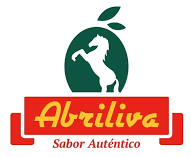So, I was scrolling through some DeFi forums the other day, and wow, people are still very confused about how their transaction history actually impacts yield farming strategies. Seriously? It’s a bit surprising, given how long these tools have been around. But then again, DeFi’s complexity sometimes feels like an onion—peeling one layer only to find another waiting underneath. Here’s the thing: managing your transactions and wallet connections isn’t just about convenience; it can directly affect your earnings and security.
At first glance, transaction history might seem like just a boring log—records of swaps, liquidity provisions, and withdrawals. But dig a little deeper, and that history becomes a goldmine for optimizing yield farming. I mean, tracking every move helps you spot patterns, fees you might be bleeding, or even missed opportunities. My instinct said this is where most folks drop the ball.
Yield farming itself is a beast. Jumping into pools without a clear ledger or proper wallet setup often leads to confusion—and worse, losses. Actually, wait—let me rephrase that… It’s not just confusion; it’s the risk of losing track of locked tokens or rewards that don’t automatically compound, which can seriously dent your returns over time.
And then there’s WalletConnect. If you haven’t used it yet, it’s a game changer for connecting your mobile wallet to various decentralized applications. But here’s a little secret—I noticed that many users don’t realize how their session management or connection history with WalletConnect influences their experience, especially on less familiar platforms.
Something felt off about the way folks casually use WalletConnect without checking their connection logs or understanding session expiries. Hmm… maybe that’s because the interface doesn’t make it obvious. Anyway, this is where having a reliable and user-friendly tool like a uniswap wallet can really smooth things out.
Okay, so check this out—when I first started yield farming, I thought just throwing tokens into the highest APY pool was enough. But then I realized the transaction history told a different story. Fees were stacking up, and some liquidity pools were less profitable once I accounted for gas costs and slippage. On one hand, the potential gains looked juicy; though actually, when I factored in my trade frequency and network congestion, the net yields were much slimmer.
What bugs me about many wallets is how poorly they display this history. Some just dump raw data without context, making it tough to assess your true yield. It’s like looking at a bank statement with cryptic codes instead of clear descriptions. And honestly, that’s why I gravitated toward wallets that offer better analytics, integrated directly with tools like WalletConnect, so I can manage connections without juggling multiple apps.
Yield farming itself is super dynamic. Pools shift, rewards change, and new protocols pop up almost weekly. Tracking all that manually is exhausting—oh, and by the way, not to mention the occasional smart contract hiccups or bugs that sometimes mess with your balances. So a well-crafted wallet that logs your transactions and helps you monitor your farming positions is very very important.
Here’s a thought: imagine if your wallet could not only record your transactions but also alert you about stale farming positions or flag when your WalletConnect session is about to expire. That would save a ton of headaches. Some newer wallets are heading that way, but it’s still early days. For now, I rely heavily on a uniswap wallet because it balances simplicity and power pretty well.

Another thing—transaction history isn’t only useful for individual tracking, but also for tax purposes. Yeah, I know, taxes aren’t fun, but ignoring proper records can lead to big trouble. Some users I spoke with barely keep tabs on their swaps and liquidity movements, which can get messy when tax season rolls around. Wallets that integrate clear export features or summaries make life so much easier.
WalletConnect, while fantastic, has its quirks too. For example, if you connect your wallet to multiple dApps and forget to disconnect one, you risk unauthorized transaction prompts, especially if your device is compromised. That’s why session management is a silent but critical security layer many overlook. I’ve made that mistake once—luckily caught it early.
Initially, I thought WalletConnect was just a convenience tool, but after digging deeper, I realized it’s a security frontier. It’s crucial to monitor your active sessions and prune connections regularly. The problem is many wallets hide this info in obscure menus, so users don’t do it. A good interface that highlights active WalletConnect sessions and their connected dApps is a huge plus.
Returning to yield farming, it’s also very important to consider how transaction history impacts your compound strategies. Without clear records, reinvesting rewards can be inefficient. Some farming protocols require manual claiming and reinvesting, and if you miss those windows or don’t track them well, your yield suffers. The best wallets provide automatic reminders or even automation features.
I’m biased, but I find the interplay between transaction transparency and farming efficiency fascinating. It’s a bit like managing a portfolio with real-time analytics rather than guessing blindly. Plus, with rising gas fees on Ethereum, every transaction counts more than ever. Skipping proper transaction reviews can cost you dearly.
So yeah, managing your DeFi journey with a sharp eye on transaction history and mindful WalletConnect habits isn’t just nerd talk—it’s practical, money-saving, and security-boosting. If you haven’t checked your wallet’s capabilities lately, maybe it’s time to explore options. I’ve been testing some alternatives, and I keep coming back to the uniswap wallet for its streamlined way of handling these exact pain points.
Honestly, the whole DeFi space feels like the Wild West sometimes—exciting but risky. Tools that help you keep a clear ledger, organize your farming actions, and securely manage connections are not just nice-to-haves; they’re essentials if you want to play smart.
Anyway, I’m still learning and tweaking my setups. Yield farming isn’t a “set it and forget it” gig. It requires attention to detail, especially with your transaction history and connection security. But with the right wallet and a bit of patience, it can be pretty rewarding—literally.


